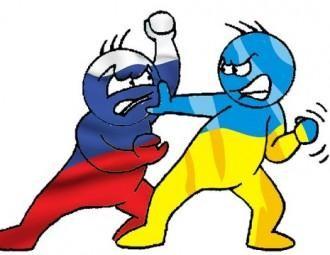Andrei Yahorau: Kremlin tries every possible means to destabilize the situation in Ukraine

Ukraine is a very important factor in the Russian domestic policy: democratization and Europeanization threaten to launch the same processes at the Russian territories.
Andrei Yahorau, the Director of Centre for European Transformation, in the interview with the EuroBelarus Information Service, analyzes situation in Ukraine and the influence of Ukrainian revolution on the relations in the Customs triangle “Belarus-Ukraine-Russia”.
- Revolution has happened, but it isn’t over yet. Will it become a new stage in the development of Ukraine or there is a threat that one power will be automatically changed to the other, without modifying the state’s policy? What will become of Ukraine after Yanukovich?
- It is impossible to make such prognoses. Situation remains unstable.
The main problem that Ukraine is facing is the question whether people in the parliament are ready to reconstruct the state rather than promote their own self-interests. It is of great importance that the parliamentary processes correlate with the people who brought victory to the parliamentary opposition.
Now a lot depends on mutual understanding between Maidan and the parliament. Obviously, Maidan is dissatisfied with some of the people who got power. If politicians try to banco Maidan, it can lead to a serious trouble and cause a new stage of confrontation inside the society. With the chaos reigning in Ukraine now, it is not the time to think about selfish interests. Thus, the fate of Ukraine depends a lot on the will and consciousness of people, who act in Verkhovna Rada.
- The whole civilized world welcomes the end of blood-spattered confrontation in Ukraine, while in the Russian media Ukrainian revolution is referred to as unrest, and Russian Foreign Ministry doesn’t recognize the legitimacy of the new Ukrainian power. Why Kremlin is so nervous about the events in Ukraine?
- It can be explained: Kremlin thought that by exercising pressure it can stop and even reverse the process of Ukraine’s integration with the EU and even lure it to the Customs Union. Ukrainians managed to stop the realization of this scenario and now have every chance to return to European integration, which makes Moscow worry about its imperial plans of creating an expanded version of Customs Union with Ukraine among its members.
Besides, Russia is well aware that democratization and Europeanization threaten to launch the same processes at the Russian territories. Ukraine is a very important factor in the Russian domestic policy; thus, Kremlin tries every possible means to destabilize the situation in Ukraine.
- Russia has lost Ukraine, but Kremlin tries to requite for the defeat. With the Ukrainian presidential election assigned for May 25, Putin doesn’t have enough time to find pro-Russian successor to Yanukovich. However, according to the Acting Minister of Internal Affairs Arsen Avakov, “certain negative actions of Russian forces in Crimea” have already been revealed. It seems that Kremlin counts on fomentation of separatism in Ukraine, doesn’t it?
- I wouldn’t be saying categorically that Russia lost Ukraine; everything will depend on the ability of Ukrainians to consolidate the political elites and restore the work of the state apparatus.
Besides, Party of Regions and pro-Russian forces that exist in Ukraine today shouldn’t be disregarded, too.
- The restrained reaction of the Belarusan authorities came as a surprise, though foreign-policy course of the official Minsk fully coincides with the Russian. Why is it so?
- Belarus is not interested in Moscow to have another ally – in this case, Ukraine will draw off all attention and all the loans and become the direct competitor of Belarus. I would say that the Belarusan regime gains profit from Ukraine’ Europeanization.
But Belarusan regime is very afraid of Maidan, which is evident from the current changes in the martial law. If the amended law comes in force, in a situation of mass protest the authorities can introduce martial law and put down protests using army, which Yanukovich didn’t dare to do in Ukraine.
Belarus is not interested in destabilization of situation in Ukraine, in escalation of civil war and separatism. Ukraine is Belarus’ second largest neighbor, and any destabilization in Ukraine brings political, economic and security threats to Belarus.
Thus, the restraint reaction of the official Minsk corresponds to the country’s national interests.
- Ukrainian revolution has played Lukashenka’s purpose: Belarus has remained the only ally of Kremlin at the western direction, which enables Lukashenka to dictate his terms in exchange of geopolitical faith. What dividend can Belarusan regime gain thanks to the Ukrainian revolution?
- Belarus occupies the same position in its political games with Moscow, as Ukraine failed to become Kremlin’s ally.
However, Maidan is a positive example for the Belarusan civil society, which is now set thinking about our present and our future. And that is not to the taste of the regime.
- “There will be no Maidan in Belarus!” – is the key-note of basically all Lukashenka’s public speeches over the last days. He has already tried to forestall Maidan: the amended martial law legitimates shooting of “mass disorders”. Do you think that Ukrainian Maidan lowers the chances for Belarusan Square-2015?
- Maidan couldn’t lower the chances if there has never been such, though it will certainly enhance the level of protest moods.
The situations in Belarus and Ukraine are absolutely different: Belarusan regime occupies much stronger position, while opposition is basically destroyed in our country.
It all makes chances for Square-2015 seem delusive.
-
03.01
-
07.10
-
22.09
-
17.08
-
12.08
-
30.09








































